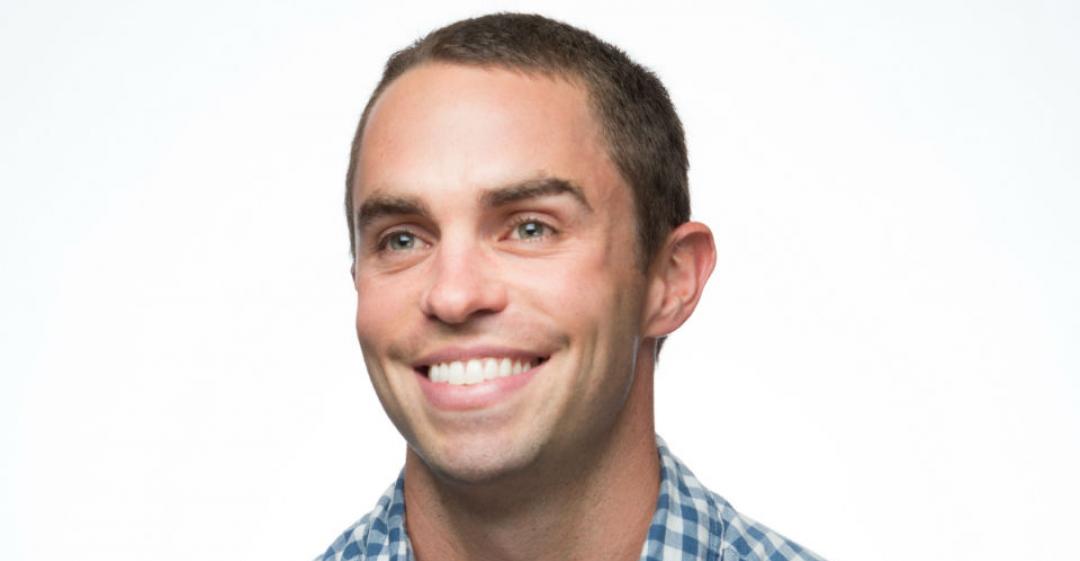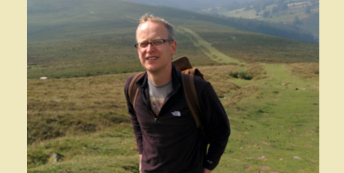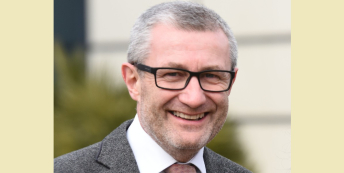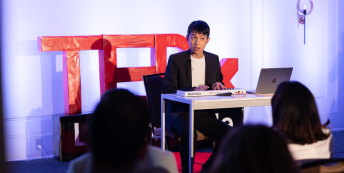“I felt like the work I was doing wasn't impactful to anyone.”

What work were you doing previously?
IT and Management Consulting at one of the big four consulting firms.
What are you doing now?
User Experience Design at Frog Design, a global innovation and design firm.
Why did you change?
I felt like the work I was doing wasn't impactful to anyone.
It wasn't rewarding to know that I could spend months working on a project and, at the end of the day, the people using the tool that I'd worked on might never know the difference.
When was the moment you decided to make the change?
I realised that I just wasn't interested in the work I was doing.
When I had to read and research for a project, I had a hard time keeping focused (and staying awake). There were lots of things that I was more interested in; I knew that I would be more successful if I could concentrate on topics that were genuinely exciting to me.
I also wanted to work on solutions to problems I could see the results of in day-to-day life. I wanted to work on products and services that people engage with every day that were riddled with frustration.
Are you happy with the change?
I couldn't be happier.
I didn't know it was possible before, but there's nothing more rewarding than getting to spend your days at work absorbed and engaged with stuff that you think about when you're not at work.
What do you miss and what don't you miss?
I don't miss having to become a subject matter expert on a topic that I'm not genuinely interested in.
And I certainly don't miss working in an overly formal (suit and tie), structured corporate environment.
How did you go about making the shift?
It all started with acknowledging that I wasn't as interested in the subject matter of my work as I could or should be.
This acknowledgement led to the question, "Well what am I interested in?"
Some of the best advice I'd received at university was to read the news and make note of the articles that I was avidly interested in, even if they seemed abstract and unrelated to my career. For me, these were almost always articles about new technology, consumer products, and design.
The concept of design was particularly foreign to me. This was in the days before the iPhone came out, when the term 'design' was far from the buzzword it is now. The realisation that design was a profession, that some people got to spend their entire workday alleviating frustrations with the way things work, was a complete epiphany for me. These were the same types of problems that I spent most of my free time thinking about and sketching solutions for!
I began feverishly researching and learning everything I could about design – Who were the leading companies in the space? How could someone become a designer? How were design organisations structured? What were the best introductory books? I read as many articles about design as I could find. The more I read, the more interested I became.
Taking that as I signal that I was heading in the right direction, I then began looking into how I could get into the design space. I delved deep into my personal network to find people who could tell me more about the industry and whether there was a place for someone with a business background but no design experience. Through my alumni network, I was amazed to find one person, Rob, who'd actually made a similar transition from management consulting to design.
Through a long series of conversations with Rob, I was inspired to learn that there was, in fact, a need for business people in the world of design and that there was hope for me to break into the field.
Rob ended up referring me for a job at Frog Design, a leading design consultancy, for a position that leveraged my strategy and project management background. It was the foot in the door that I needed.
When I got to the first interview, all of the reading and research that I'd done made it clear to the interviewers that I was truly passionate about design and that I'd done my homework. At the end of the day, it was my self-awareness and passion for the space that encouraged Frog to take a risk on me when I didn't have a background in design.
What didn't go well? What 'wrong turns' did you take?
The first mistake I made was assuming that, because I didn't have a background in design, there was no chance for me to get a job in the industry.
I also didn't realise at the time how long it takes, and how patient I would need to be, to identify, research, and ultimately interview for a job that I was really passionate about. During the year-long process, there were many low points during which I couldn't see the light at the end of the tunnel, and where I felt that my efforts were to no end.
I now know that creating significant change can be hard and time consuming.
How did you handle your finances to make your change possible?
During the year of my job search, I was fortunate to have had several months of being unassigned to a particular project at my current job, affording me the time (with income) and the breathing space to undertake my search.
What was the most difficult thing about changing?
The low points when I ran out of leads and opportunities, and felt like I had to go back to the drawing board.
It takes way more persistence and resolve than I expected to fight through those desperate points.
Also, there was that paralysing feeling of knowing what I was passionate about, but feeling totally unqualified to get there. The reality, that I discovered, is that there's almost always a place for you in a new field; you may just need to figure out where the overlapping skills are, brush up on the areas that you know the least about, and find the appropriate starting role to get your foot in the door.
What help did you get? 
Rob, whom I found via my alumni network, was living proof that there was a place in design for someone with a business background.
He helped me identify which of my skills were transferable and provided colour to my understanding of what life was like at a design consultancy. Having that sense of 'this is a good fit for me' was invaluable in giving me confidence at job interviews.
What have you learnt in the process?
Finding work you love is a marathon, not a sprint (it's a cliche, but true).
What do you wish you'd done differently?
I wish I'd known earlier on that there was a place for someone like me (with my background, skills and interests) in design.
I spent a lot of time reading and learning as much as I could about the industry, but it wasn't until I'd had a conversation with Rob, who'd already made the shift, that I felt confident enough to proceed with getting a job.
What would you advise others to do in the same situation?
Don't expect to quickly and easily find what you're passionate about and get a job doing it.
It takes a lot of introspection, hard work, humility, and continuous learning to put yourself in a place where you can truly love what you do. If finding a career that you love were easy, a lot more people would be excited to wake up on Monday morning.
Do whatever you can to put yourself within 'firing distance' of work that you're interested in. This may require taking a more junior- or entry-level position. I knew I wanted to work in design. I took a job that wasn't necessarily the role I was dreaming of, but one that put me in the environment to learn, validate my passions, show value and, ultimately, move laterally within the organisation.
Taking a few steps back sets you up to take many steps forward. Once you're in the vicinity of what you love, you'll be more likely to succeed. I've found that people who align their true interests with their work always move quickly upwards, often making more money in the process, and are happy to wake up and go to work each morning.
Be tireless in your research and networking. Learn everything you can about the space you're interested in. Visualise yourself in that industry. Take classes. Take on projects that let you try your hand at the kind of work that you're interested in, but haven't done before.
At the end of the day, nothing speaks louder than the effort you've put in to master a new topic area.
What lessons could you take from Patrick's story to use in your own career change? Let us know in the comments below.



